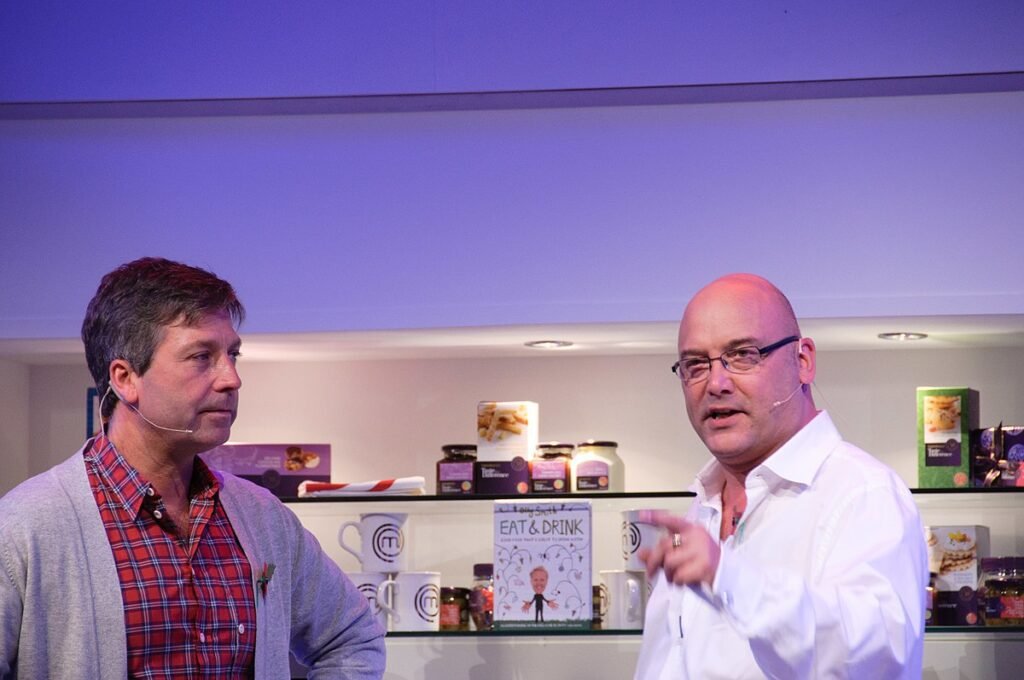Gregg Wallace, widely recognized for his role as a judge on MasterChef, has recently faced intense scrutiny, with aspects of his personal and professional history drawing renewed attention. The 60-year-old television personality has stepped back from his duties on the popular BBC program as allegations of inappropriate behavior on set surface, prompting an ongoing investigation.
Wallace is accused of making unwelcome sexual comments, asking for phone numbers from female production staff, and doing other disturbing behaviors, such as undressing near colleagues. He reportedly mimicked explicit acts and appeared nearly naked in work settings. Complaints from over 13 individuals spanning nearly two decades point to a troubling pattern.
The accusations have been met with a strong denial from Wallace, who attributed the allegations to “middle-class women of a certain age.” This response, however, has only fueled further backlash, drawing criticism from public figures like Ulrika Jonsson and Kirstie Allsopp.

Adding to the current scandal are comments and public image Wallace previously made. He once claimed he deserved a statue in London for “saving the nation” and made inflammatory comments about parenting. His public declaration of being a self-proclaimed “hooligan” during his youth also came to light, adding further complexity to the story surrounding his public image.
From Peckham to Television Stardom
Born and brought up in South London, specifically in the Peckham area, Wallace started his career away from TV glamour when at the tender age of 14 he dropped out of school to venture into Covent Garden’s fruit and vegetable market. However, 1989 marked an event where he started operating George Allen’s Greengrocers – an entrepreneurial start.
In a 2008 interview with Zoo magazine, Wallace spoke of his turbulent youth, showing how he had been a member of the Millwall football club’s hooligan fans. Millwall was then notorious for its “ferocious reputation,” and “it was attracting a large percentage of people able to cause havoc,” according to Wallace.
Recalling his time as a self-described “Millwall hooligan,” he admitted to having been arrested for assault when he was 20 years old. “My Millwall days are long behind me,” he said, explaining that his behavior was the result of the environment in which he was raised. “I was a product of my area. Police were making hundreds of arrests at every home game back then. Getting nicked was like a social pastime!”
Public Reaction and Future Developments
Wallace’s response to the latest allegations has attracted harsh criticism. His remarks are interpreted as dismissive and deflective by many. Implications of his past remarks combined with the present accusations against him have set the ball rolling in the public domain in a debate over accountability and professional conduct.
Former colleagues and industry professionals have been quoted on their views, ranging from defending Wallace to urging an investigation into the claims. The BBC has made no comment on Wallace’s future on MasterChef beyond stating that the process should be transparent and fair.
The journey of Wallace – from a young greengrocer in South London to British television’s household name-was bound to be the stuff of compelling drama. Now, though, his own personal and professional life looks like it is under the microscope again, first with earlier confessions and then current controversies raised about what constitutes acceptable behavior within the workplace.
The investigation continues, focused on the matters raised in complaints brought forward by those involved. Wallace’s response and the reaction from the public reflect a broader conversation into power dynamics, accountability, and behavior expectations evolving within media and entertainment industries.
The story of Gregg Wallace reminds one, at its core, of how public figures are, indeed, held to a higher standard—one that reflects the public persona and their act in the public realm.


